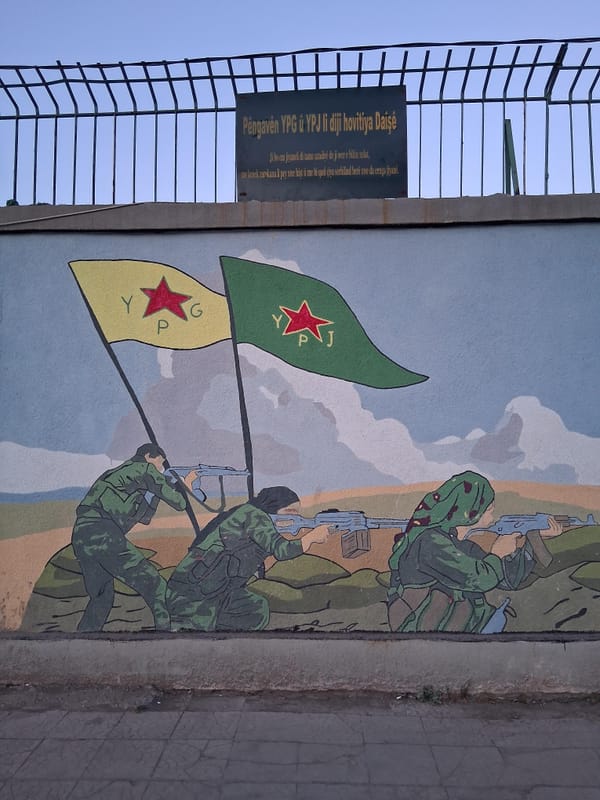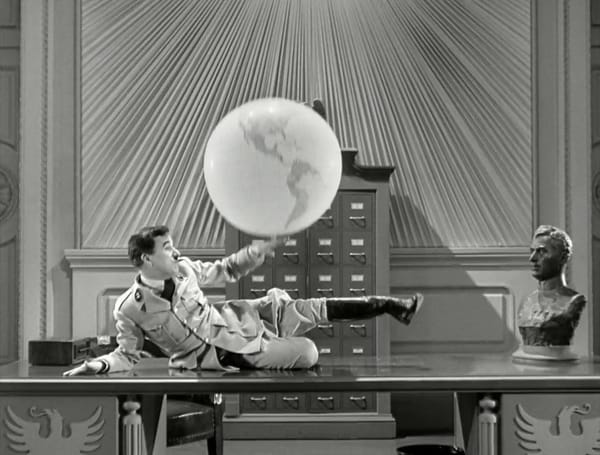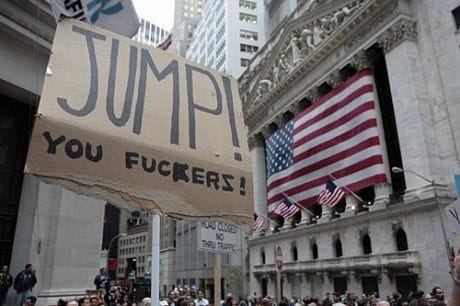Trade-offs
Can we make sure our belief in anarchy and freedom is not just another faith that serves as an alibi and positions us above history nodding our heads? The Enlightenment runs deep, a most dangerous export of colonialism. When we concede to reason(s), we lose autonomy.

Yesterday in the subway, I saw this message from the city on one of those lit up billboards that have now populated the platforms: the congestion pricing helps makes stations accessible. In other words, the money raised by increasing tolls for cars coming into the city via certain bridges and tunnels is how disabled people are going to be able to use more subway stations. The equation struck me. Give us that and you get that. It goes the other way too: the money we take from the libraries will go to police overtime to harass kids in Gaza protests (or play Candy Crush on the corner, which has become the citywide wisdom about much of a NYC cop’s use of time not beating students and other protestors). The money spent on police and MTA security watching turnstiles to stop fare evasion could instead be used to make public transit free for everyone—another way to stop people from jumping turnstiles, except out of the pure joy of doing it.
The neoliberal state has functioned off the categorizing of deserving and undeserving. Certain people should get the support they need, and certain other people are denied for various reasons. The deserving poor, or welfare queens. It always falls along racial and class-based lines, criminalized people like poor Black people, drug users, unhoused people, sex workers and on and on). In “Against Innocence,” Jackie Wang shows how this kind of logic translates into who deserves to be killed by the police and who doesn’t, often determining which lynching victims can inspire a movement.
Since the 1970s, the MTA and the city have been arguing for exemption from the different laws that demand public transportation be accessible to disabled people: these arguments have included that buses have been made accessible, so people in wheelchairs can use buses instead of the train; they already identified the high traffic stations and installed elevators there; and among other excuses and reinterpretations of policies to benefit their refusal to spend the money, an endless delay of their commitment to applying this policy. This sleight of hand and use of alibi could outrage us, or we could just fit it into the countless ways that the government has weaseled its way out of providing services. The fact that cities are basically held hostage to the police, along with a general logic of security, funnels all the funds to militarization and abuse, throwing the police at every problem that arises. Maybe cops can help you get into the subway if you need it—or shoot randomly into a train car in pursuit of someone who maybe didn’t pay.
The explanation that there will always be tradeoffs is an inherent part of US ideology, connected to the idea of compromise. These are reasonable explanations of how policy should be determined, using the idea that differing political opinions (what the founders sometimes feared as factions) represent two opposing poles and the solution is the middle road, compromise. But when compromise is invoked, the echo of the Three Fifths Compromise, a deal with Southern slaveholding states at the 1787 constitutional convention that allowed enslaved people to be counted as 3/5 of a person to determine the representation in congress calculated by population. Far from a middle way, this compromise gave an outsized power to the South, an early salvo in the history of white supremacist politcians in the South crying and complaining about the unfairness of the North, and the federal government making concessions. A long history of an insurgency fulfilling its ultimate prophecy in the Trump administration’s reimposition of overt racist, anti-Black policies, using the tactics of victimhood and supremacy together.
But there is a difference in the Trump administration’s actions: no longer are tradeoffs invoked to manufacture consent among the populace. The gutting of federal jobs, funding cuts for research and universities, repeal of laws and regulations for health and safety, the attack on trans people, DEI, and most explicitly violent right now, the kidnapping and attack on migrants or activists born outside of the US—all of these moves to dismantle the federal government, subdue resistance, and expose more and more people to death are not positioned as compromise. Sometimes an idea of fairness and grievance is invoked, like that longtime Southern strategy—Elon Musk pretending that there are dead or just lazy people claiming social security and other benefits, or the classic argument that we get less because migrants get more. These appeals are also racialized as always, directed at white Americans to reinforce a sense that the rightful citizens of the US are being replaced, threatening the future of the white race and the “freedom” it deserves.
So running through tradeoffs, compromise, fairness, grievance (all of the rationale for harmful government policies) is simply racism. The bells and whistles of statistics and calculations mask the violence aimed at racialized groups, which will radiate outwards to the poor of any kind and eventually everyone in a continual distribution of resources upward. This is not a big reveal, many people with decent historical knowledge and political analysis know that this is the bedrock of the United States, and European civilization writ large. Think of how the ideals of freedom and democracy that were invoked in the bourgeois revolutions (US and France) are nothing but the colonial, eugenic claim of white ascendancy and progress over the peoples of all other lands.
Can this winding analysis that I just outlined out of a commuting musing help us focus our struggle against the consolidation of power, against the state and capital, against whiteness and colonialism? The more we can break out of human rights thinking—the apotheosis of “deserving”—the less we will be susceptible to the illogic posing as reason that makes up all state maneuvers. Perhaps the most important transformation from the militant movements of the 1960s and 1970s has been a shift from a commitment to uprising and armed struggle to an appeal to rights. This shift of terrain means we are always losing ground and reconceiving our dissent within the bound that the state imposes. We rely on reason and empathy against a system that only knows brute force.
Even anarchists and anti-authoritarians have this logic running in their heads, if only unconsciously. The massive loss of life in genocides is never deserved. In the imperial core, we don’t deserve to be treated this way. We deserve liberation through the destruction of this world. We are stuck in humanity, empathy, liberation as ideals that ultimately float the power systems we want to destroy. While the news media explains away the outrage at the blatant contravening of these ideals by the current administration, do we not also shake our heads at the unprecedented exposure of the underlying racial logics of the state? Do we not scold each other about fascism and the lack of action?
Capitalism tends towards mass death, and the state either reins it in minimally or serves the people up on a plate. Every generation it seems this battle is renegotiated around crisis, but our forces of rebellion are continually weakened. The current crisis is perhaps different in that it has been intentionally sought out rather than framed as an “accident,” not inherent to the system. It plays off the nihilism of global environmental destruction, that there will not be many further generations of life on earth, that some of us might be saved, whether by God or wealth.
I don’t think I can offer any solutions here, except my refrain of shifting our perspective away from the grand monstrations of power toward our daily individual and collective forces. When we stick with an analysis of state power, we often totalize it, erasing our own power and foreclosing any strategy to use it. While we turn ourselves toward the daily relations of power that we embody, we can also be prepared for anything and everything when the tipping point comes and our forces spontaneously erupt in collective uprising. Then we can push towards confrontation instead selling out for reforms.
But I wonder, can we make sure our belief in anarchy and freedom is not just another faith that serves as an alibi and positions us above history nodding our heads? The massive shift in thinking that would allow us to fight for anything more than the minimal gains, or the recuperated radical ideas given to us as pittance by the state, seems intangible. Most of our insurrectionary moments are drowned out by a false history of nonviolent protest as a viable means of concessions. The Enlightenment runs deep, a most dangerous export of colonialism. When we concede to reason(s), we lose autonomy.





